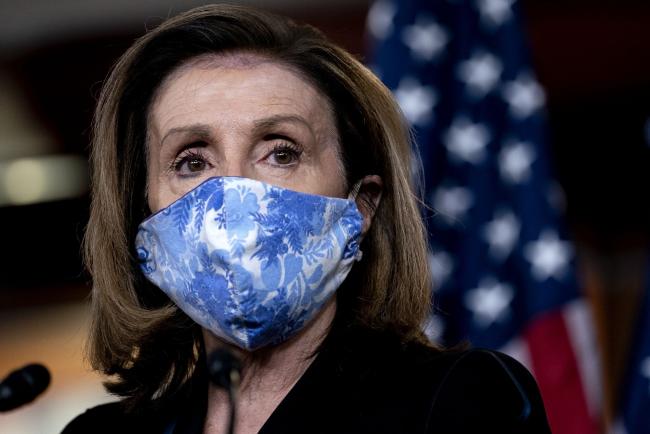This post was originally published on this site
https://d1-invdn-com.akamaized.net/content/pic2ededc5ef797dea277ff9fc42277bd27.jpg
“Our focus in the lame duck continues to be on Covid relief — this is a red alert,” Pelosi said at a press briefing Friday at the Capitol, referring to the congressional session preceding the installation of the new administration in January. “I urge Republicans to acknowledge the crisis and come to the table to work on Covid relief.”
The House returns to session next week, with no public schedule for any renewal in stimulus negotiations. Senate Majority Leader Mitch McConnell, on whom the White House this week effectively placed in charge of representing the Republican side on the issue, underscored Thursday his opposition to a package of the size Pelosi wants.
Pelosi and Senate Democratic leader Chuck Schumer Thursday reiterated that their $2.4 trillion proposal needs to be the starting point for talks. McConnell has advocated for about $500 billion, a top-line number well below the Trump administration’s roughly $1.9 trillion negotiating position before Election Day.
Read More: White House Leaves Stimulus to Congress as Biden Enters Fray
Observers see little likelihood of a deal before President-elect Joe Biden takes office, and with the control of the Senate next year still in question. Democrats have a shot at retaking the upper chamber if they win two runoff races in Georgia on Jan. 5.
“Something in the neighborhood of $1 trillion late in the first quarter is a reasonable expectation” for fiscal stimulus, Michael Feroli, chief U.S. economist at JPMorgan Chase (NYSE:JPM) & Co., wrote in a note this week. Morgan Stanley (NYSE:MS) strategists are similarly penciling in a package of that scale in early 2021.
©2020 Bloomberg L.P.

